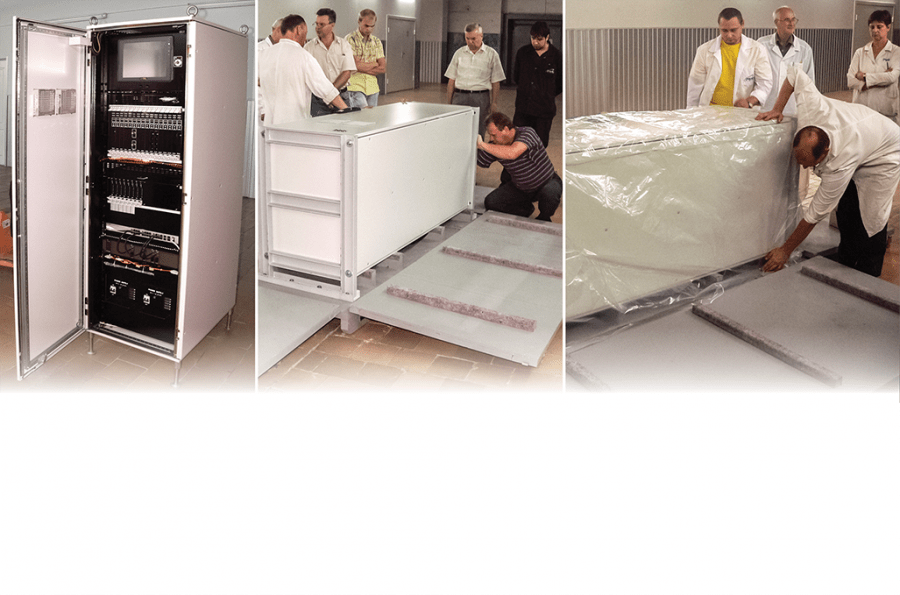
As a SunPort donation, an FPGA based testbed for developing instrumentation and control (I&C) applications in nuclear power plants was delivered to the McMaster University in Hamilton, Ontario, Canada. The testbed is in support of the university’s project on “Certification of Safety-Critical Software-Intensive Systems” run in collaboration with Professor Tom Maibaum, Professor Mark Lawford, and the Ontario Research Fund.
SunPort SA is actively engaged in the marketing and business development of FPGA-based systems for use in the nuclear industry. The FPGA-based I&C systems are supplied by RPC Radiy and have already been used in the nuclear industry in the Ukraine and Bulgaria.
In the past 15 years, Radiy has designed, manufactured, and supplied FPGA-based digital I&C systems and components in more than 70 safety-critical applications in operating nuclear power plants. The majority of the I&C system applications were installed in “turn-key” modernization projects at various nuclear power plants, covering a wide range of safety and control functions and systems, such as Reactor Trip System, Reactor Power Control and Limitation System, Engineered Safety Features Actuation System, Rod Control System, Nuclear Island Control System, and Turbine Island Control System.
The Canadian nuclear power industry is an important market for us, and we are pleased to be able to cooperate with McMaster in order to develop methods and tools for FPGA based systems that are suitable for use in the Canadian nuclear industry. To enable this cooperation, we have supplied a digital safety I&C system (built on Radiy’s FPGA-based Platform) for the team at McMaster to use as a testbed for research and verification.
Through this cooperation we expect to have our system and its function block library tested and verified independently, which would enable our FPGA-based systems and the associated software and software development techniques to be licensed by, inter alia, the Canadian Nuclear Safety Commission and so establish a strong market position, as well as enhancing knowledge and skills in Ontario in this important technology. In particular, we hope that this collaboration will lead to new business opportunities in the North American market and enable us to expand our Canadian office located in Toronto.
We are very pleased to have this opportunity to collaborate with a world-class team of researchers at McMaster. We have every confidence that the collaboration in this project will strengthen our technical skills and marketing position and will, we expect, be the basis for further future collaborations.
